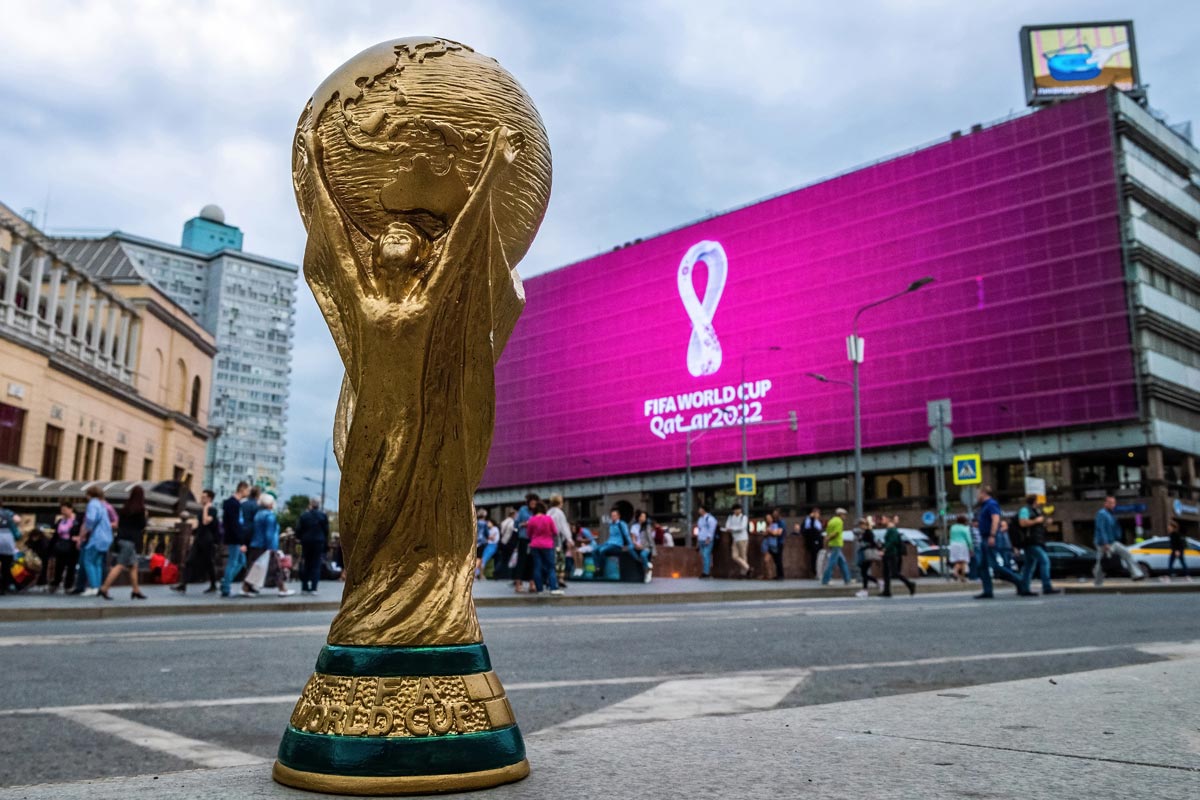Although supply and demand around rooms “will be tight”, FIFA World Cup rooms and other accommodation will be prioritised for FIFA World Cup Qatar 2022 ticket holders throughout the event, according to Berthold Trenkel, the chief operating officer of Qatar Tourism.
Qatar’s Supreme Committee for Delivery and Legacy has promised 130,000 rooms – including 48,000 hotel keys and 60,000 rooms in apartments and villas – plus around 4,000 rooms on two cruise ships and the remainder in fan villages.
“We want to make sure everybody with a match ticket will get a room – we’re giving priority to people wanting to visit and access the tournament,” Trenkel told Hotelier Middle East at Arabian Travel Market (ATM).
Room allocation falls under the Supreme Committee, while Qatar Tourism is entrusted with promoting Qatar and its touristic offerings as a whole.
Trenkel added: “There are many opportunities for people to stay in Qatar. Accor for example is managing a further 60,000 rooms during the event; we have two floating hotels; we have tented accommodation and we have a growing holiday home sector.”

FIFA World Cup rooms must be booked through the official channel
While accommodation is prioritised for ticket holders, the tourism chief said authorities are not in a place to guarantee rooms.
Trenkel said: “‘Guaranteed’ may be too hard a word. It’s an open economy and we will have full offerings at different price points. That’s why the Supreme Committee is managing the accommodations – to ensure people will have access and they will have transparency on what is available.”
Trenkel added that those seeking accommodation in the city must do so through https://www.qatar2022.qa/book/en/.
He explained: “We have all the options in one place. If you’re looking, this is where to look. Don’t use an OTA or any other website, use our centralised inventory.”
FIFA World Cup rooms centred in Qatar
In April this year, FIFA president Gianni Infantino confirmed to Reuters “there will be accommodation for everyone” during the FIFA World Cup Qatar 2022, adding that fans should consider visiting nearby GCC states during their trip to Qatar.

Colliers later released a report predicting the sporting event will cause a ripple effect for tourism and hospitality in nearby countries, especially the UAE.
Responding to whether such a ‘halo effect’ will be seen for wider GCC tourism, Trenkel said: “From the nearby destinations, we might have some people who just fly in for the match and fly back after the match. There will be some of that.
“Just look at the numbers though, an average airplane holds around 250 people, how many planes can you fly an hour? Just do the maths, endless capacity isn’t possible. There won’t be more than 10,000 to 15,000 flying in per day. Most people will stay in the destination itself.”
FIFA World Cup Qatar 2022 lasts longer than just 28 days
At the top of the tourism chief’s agenda is ensuring the impact of the FIFA World Cup Qatar 2022 is felt long after the event is over. Qatar Tourism sees the sporting event as a chance to show the world what Qatar stands for.
Trenkel explained: “We need to look beyond the event [FIFA World Cup], the event is 28 days only. It’s an event with huge media attention, there’s nothing in the world which is bigger, and even the Olympic Games don’t get the same attention. The World Cup gets excessive media coverage – every TV station covers Qatar.
“Our role as Qatar Tourism is to ensure people see the destination and experience the country not just for the World Cup but for the wider offerings. A big difference with this World Cup is because it’s in one compact country, people will have much more time to experience the destination.”
FIFA World Cup Qatar 2022 shows the country to fresh markets
Looking at the influx of visitation to the Gulf state over the event, there is a 3,519 percent increase in searches for hotel stays in the country in November 2022 compared to 2021.
That’s according to travel marketing firm Sojern, which also shows South American, Central American and Caribbean users have searched for Qatar 2,150 percent more than in November 2021.
Sojern quantified the appetite for the event by looking at the most searched travel dates for the next 12 months, using flight data released as of February 28, 2022.

For Trenkel and his team, this sort of spike gives Qatar a chance to introduce itself to new markets. He said: “For most visitors, it will probably be their first time not only in Qatar but perhaps the whole Middle East. They will be naturally curious about what it has to offer and learn more about that culture. It’s a whole new part of the globe. There’s a huge draw from the Americas for this event, there will be thousands of those places coming here and they’ve never seen the Middle East.”
With the entire world looking at Qatar for a month, Trenkel revealed his strategy is not to create repeat visitors through football fans, it is to create repeat business through all those unable to attend.
He explained: “For us, it’s not about FIFA fans coming back to Qatar after the event. We’re not building the business on immediate repeat visits. We’re building a business on all the millions of people who watched the tournament around the world and were not able to visit Qatar. These people will learn about the wider destination through the event and will get intrigued about it, this is how we bring them back.
“That’s what we’re focusing on; it’s not about the 1.5 million visitors for the event, it’s about all the people who could not come. If you look at the sheer numbers behind the last round of ticket applications – there were around 21 million applications [for tickets] and only one million tickets being sold.
“Less than one out of 20 then have got a ticket, there’s huge pent-up demand for this tournament, and we can translate that pent-up demand into visits to the country. After watching the World Cup, these 20 million will know about the destination, they will know the attractions, they will be interested in visiting.”
This article was originally published on our sister site, hoteliermiddleeast.com.






